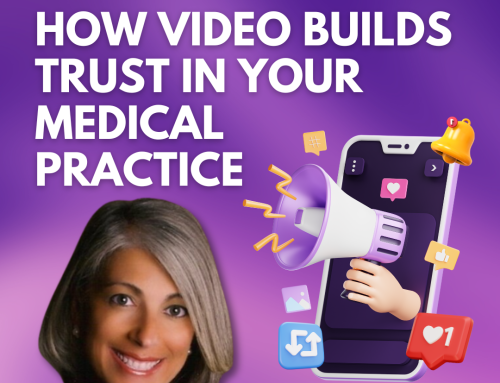“From AI-powered chatbots that bring a human touch to predictive marketing that personalizes patient care, today’s medical marketing is more dynamic than ever. Discover how these cutting-edge trends are transforming patient experiences and helping practices thrive in a digital-first world.”
Current trends in medical marketing are focusing heavily on digital engagement, personalization, and data-driven strategies to enhance patient acquisition and retention. Here are some of the top trending topics for blog content in this space:
- AI and Chatbots in Patient Engagement: With advancements in AI, chatbots are becoming essential tools for real-time interaction, helping patients with scheduling, answering questions, and even assessing symptoms. These tools improve response times and patient satisfaction but should complement rather than replace human interaction for empathetic care (HealthCare Success; Prakhar Tyagi).
“How a Simple Chatbot Became a Lifeline for a Stressed Mom”
Imagine Sarah, a young mother who recently moved to a new city with her family. Between taking care of two toddlers and starting a new job, her days are filled with hectic schedules, and finding a new doctor had been on her to-do list for months. One afternoon, as her son developed a sudden fever, she realized it was time to get help but had no idea where to start.
She landed on a local healthcare provider’s website and was immediately greeted by a friendly chatbot named CareBot. CareBot asked her a few questions about her location and what she needed, responding instantly, asking if she wanted to schedule a same-day telehealth appointment, and suggesting nearby pharmacies for medications.
Throughout the conversation, CareBot didn’t just act as a functional tool; it gently guided her, sending a link with children’s fever management tips and reminding her to follow up if symptoms persisted. Sarah felt reassured, as if someone was looking out for her and her son.
At the end of their chat, CareBot reminded her to call or message directly for anything urgent, offering a sense of humanity in a world that sometimes feels overly digital. In minutes, CareBot helped her get an appointment with a pediatrician nearby and provided tips that eased her worries. For Sarah, this little interaction made all the difference—she found care when she needed it most and realized that technology, when done right, can feel warm, human, and genuinely helpful.
This story shows how chatbots can go beyond tasks, becoming part of a patient’s journey, offering both immediate solutions and a bit of comfort—an unexpected kindness in moments of stress.
2. Personalized Content and AI-Driven Predictive Marketing: Using AI, marketers are now able to predict patient needs and customize marketing messages accordingly. For instance, AI systems can prompt flu vaccine reminders to targeted demographics, significantly improving the relevance and effectiveness of campaigns (HealthCare Success).
3. Patient Reviews and Online Reputation: Gathering more reviews and optimizing for online visibility are key for private practices. Techniques such as automating review requests, improving local SEO, and managing online listings are proving essential as patients increasingly rely on online research when choosing providers (Tebra; HealthCare Success).
4. Video Content and Storytelling: Video continues to be highly engaging in healthcare marketing, with content like patient testimonials, procedure overviews, and educational series. By adding an emotional element, storytelling in video format can increase patient trust and foster a connection to the practice (Prakhar Tyagi).
5. Utilizing CRM for Patient Retention: Customer Relationship Management (CRM) tools tailored to healthcare are helping practices engage lapsed patients by sending reminders and educational content. By addressing reasons for patient disengagement, such as transportation or childcare issues, practices can improve retention rates (Tebra).
6. Podcasting and Social Media Influencers: Podcasts are increasingly popular, reaching a broad audience and allowing for deeper discussions on health topics. Partnerships with healthcare influencers also amplify reach, making these valuable channels for patient education and brand building (HealthCare Success; Prakhar Tyagi).
For medical marketers looking to stay competitive, embracing these digital-first strategies will likely yield the best results in 2024. By aligning content with patient needs and leveraging emerging technologies, healthcare practices can foster better engagement, loyalty, and ultimately, growth.




